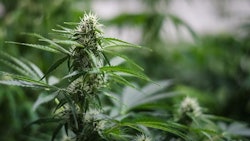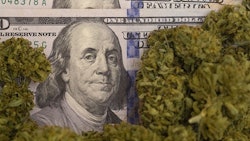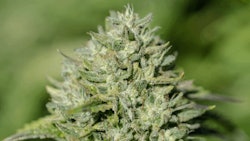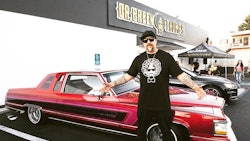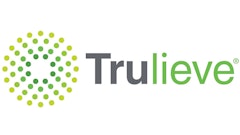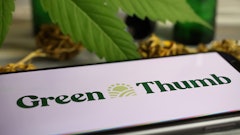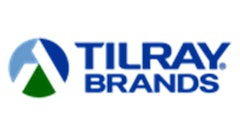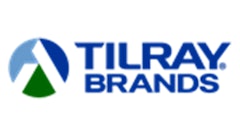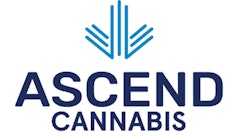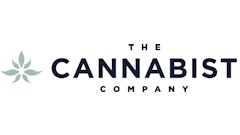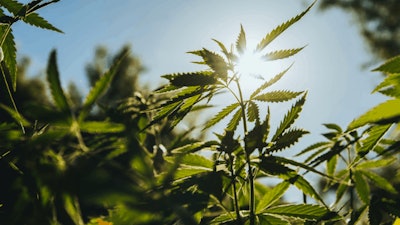
As the popularity of Delta-8-tetrahydrocannabinol (THC) rises, questions remain about its legality, leaving some wondering if it's a good market opportunity for their business.
Contention surrounds the topic of whether it’s legal. Some industry stakeholders and observers, such as respected cannabis researcher and board-certified neurologist Dr. Ethan Russo, M.D., say the psychoactive cannabinoid—comparable in many ways to Delta-9-THC—clearly isn’t. Others frame it as a convenient legal loophole or classify it as legal under the terms of the 2018 Farm Bill.
“We really see Delta-8 as a natural progression of the cannabis industry and specifically the hemp industry,” says Chris Roth, CEO of Highline Wellness. “I think during the time of the 2018 Farm Bill, the information available was very limited on hemp, and frankly, the education of the agencies responsible for writing the laws was probably not where it needed to be in terms of being able to set up a regulatory framework that made sense for not only consumers but businesses.
"Part of that perhaps early-stage or green approach was that they explicitly made Delta-9 THC derived from marijuana the only ingredient illegal in the Farm Bill,” he says. “So, at the end of the day, that is the law that is governing the hemp industry.”
He thinks that as more people and agencies become aware of Delta-8 and other cannabinoids that are recently being discovered, like Delta-10 and Delta-7, legislatures will realize that they missed it in the law and will either call attention to it or re-write the law. Over the past several days, the Oregon Liquor Control Commission began rulemaking to address Delta-8, and the Michigan Cannabis Manufacturers Association has called on that state’s legislature to require regulation of the cannabinoid.
The Drug Enforcement Administration’s (DEA) stance remains unclear to some, and the agency reportedly didn’t provide a clear answer to Rolling Stone in a feature on Delta-8. As for the Food and Drug Administration (FDA), Russo says, “I don't think that the FDA has the bandwidth to do anything about this right now. They're much more involved trying to get COVID drugs approved."
.png?auto=format%2Ccompress&fit=max&q=70&w=400)
Roth’s Highline Wellness, a direct-to-consumer [cannabidiol] CBD lifestyle brand, is one business that jumped on the Delta-8 train. The team was introduced to Delta-8 in 2019, but did not launch its Delta-8 brand, Reform Wellness, until the beginning of March 2021.
“We really do see ourselves as a plant-based medicine company and less so a CBD company, so we think Delta-8 is consistent with our whole ethos and how we view the world,” Roth says.
The brand currently sells Delta-8-infused gummies but has plans to get into vaporizers very soon, Roth says.
Because the Delta-8 brand is a new addition, it is difficult to tell what the return will be like this early; however, Roth says Reform Wellness is performing better than Highline Wellness was within a month of being launched.
Like Highline Wellness, Lifted Made, a wholly owned subsidiary of Acquired Sales Corp, was also introduced to Delta-8 in 2019.
As previously reported by Hemp Grower, Lifted Made began putting Delta-8 products on its shelf last summer, and the brand now offers various Delta-8 products through its Urb brand like vaporizers, gummies, flower and more.
Warrender says that many consumers have reported to like Delta-8 products, as it gives them an uplifting and relaxing effect.
It can be a good middle ground for consumers who are looking for something less intense than Delta-9 but more potent than CBD.
While the cannabinoid has helped the brand increase its profits, it is a challenging industry to get into, said Nicholas S. Warrender, vice chairman and COO of Acquired Sales Corp and CEO of Lifted Made.
INDUSTRY CHALLENGES
When the brand initially entered the Delta-8 market, one of the biggest challenges was testing, as many labs did not have the correct standard operating procedures (SOPs) in place to accurately test Delta-8 products.
But as more businesses started to rush into the market, testing became more readily available, Warrender says.
Although testing has become easier to access, taking the time and investing in finding a reliable third-party testing laboratory or chemist is essential, he says.
As Delta-8 seems to be pushing itself out into the marketplace rather quickly, one of the biggest threats in the industry right now is unsafe products, which was also a challenge in the cannabidiol market, Warrender says.

"We launched very early, and we've always put out the highest quality, which means we aren't the cheapest, but we aren't the most expensive," Warrender says. "So, we tried to find this middle ground where you are getting great quality at a somewhat good price; however, we have people that are coming into the industry for the wrong reasons, and as they come in and undercut your pricing because their cost of goods is less or they're not using safe product packaging.”
All these factors manifest as a threat for not only consumers, but businesses too, as they must ensure their product sources are credible and legitimate. Another existential threat is regulation from the DEA. Businesses will see regulations come down the pipeline in years to come, Warrender says.
As for Delta-8 and its future in the hemp industry, there is still a lot to uncover, especially with chemical formulations, he says.
"I think Delta-8 has been great, and it's not going anywhere, but we've been looking into Delta-8 plus other cannabinoids," Warrender says. "I really think finding formulas with these other cannabinoids will help get the full effect and expand offerings that are more specific to what consumers are needing."
SOME HEMP GROWERS AVOIDING DELTA-8
Not every business aims to capitalize on Delta-8.
Tweedle Farms, a cannabinoid hemp grower in Jewell, Ore., has about 10 acres of outdoor production, 6,000 square feet of greenhouse production and 1,000 square feet of greenhouse propagation. The team creates custom formulations for products such as tinctures, edibles and topicals—which partners extract—and processes its own smokable flower. The company sells those products through its website.
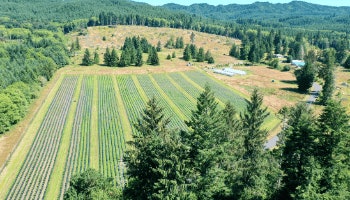
Tweedle Farms
Jason Evans, who co-founded Tweedle Farms with co-owner James Green in 2016, says the business does not have plans to deal with Delta-8.
“We’ve never, as a farm, set out to grow—or as a retailer, set out to manufacture or distribute—anything that’s intoxicating,” Evans says. “The whole process of setting hemp aside from marijuana, by de-scheduling hemp and classifying it, is so that it can be looked at as a separate commodity and something that is not intoxicating.
“Then to have manufacturers, marketers, wholesalers, retailers, take what is a natural component of the hemp plant and then synthetically convert it into a cannabinoid that [arguably] isn’t on the schedule but is still just as intoxicating—just to put it in simple terms, it’s not a good look for our industry. There’s a ton of potential profit behind it, but it doesn’t give us a good look.”
Referencing Delta-8, Evans said Tweedle Farms isn’t “jumping from one hot product to the next hot product,” echoing words from a separate conversation HG had with attorney Alex Buscher.
Evans said: “It's frustrating to see that people are selling tons of hemp flower without compliance batch tests or misrepresenting what Delta-8 is—or any cannabinoid—or selling what they’re calling ‘Delta-9-compliant flower’ with 10% THCA so it’s just marijuana.” (THCA converts to THC when heated, through decarboxylation processes such as smoking, vaping and extraction.)
As for Buscher, he says there are opportunities for hemp growers on the fiber and grain side of the business.
“I would recommend people look at the industrial side of hemp instead of just the cannabinoid side of hemp because we’re seeing the same cycle of people rushing into the same cannabinoid and crashing the price and then rushing into the next cannabinoid and crashing the price,” Buscher says, painting a similar picture as Warrender.
Another business that isn’t rushing into Delta-8 is EcoGen Biosciences, a grower, processor and extractor of cannabinoid hemp that’s headquartered in Grand Junction, Colo., and operates as a wholly owned subsidiary of Newport Beach, Calif.-based Kadenwood.
“We stay away from it,” Garrett Bain, president of EcoGen, says of Delta-8. “We focus on our core business, which is genetics, farming, processing and refinement. So, really, D8 is not a part of our business model. But we understand that there’s a market out there; there’s demand for it. We just hope that the folks that are in that market are being good stewards of the industry and maintain a level of quality and safety that everyone expects.







